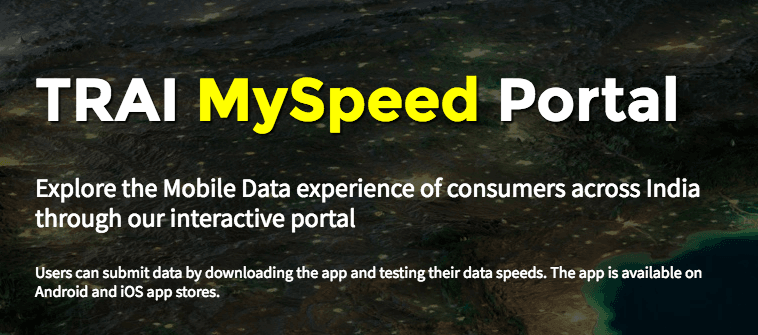The Telecom Regulatory Authority of India is likely to soon meet 7-8 internet speed testing firms, including Ookla to study their methodology to measure upload and download speeds over the next one or two months.

The regulator's move, which comes amid the raging debate over the efficacy of third party speed test results, will lead to a 'paper' that will be placed in the public domain in the coming months, a PTI report said.
The report said that the regulator aims to do research on methods as well as factors that affect the test results.
The regulator has reportedly written to various firms that provide these apps to come and make a presentation before the regulator.
A government source told the wire service that the initiative would help raise consumer awareness about the various apps and choices available to users. Besides, the exercise could also lead to improvements in MySpeed app.
The regulator, however, will not rank these apps or set standards for them.
"There may also be consumers who have never used these apps to check speeds. The idea is to make the public aware of all the options available, and educate the customer," a Trai official was quoted as saying.
"There are times when variations are found even when tests are conducted in quick succession. So we thought why not call them to see the working," the official further said.
The war over speedtest results started in January this year following Ookla's Speedtest results that termed Bharti Airtel as the fastest 4G network in India.
The results however contested by Reliance Jio, which even filed a legal complaint against Ookla, and approached advertising watchdog against Airtel's Speedtest centric advertisements.
Not just Ookla, but OpenSignal speedtest results found Jio’s average LTE speeds to be much slower. However, Trai's speed test data through MySpeed app ranked Jio as fastest telco for past few months. OpenSignal's Kevin Fitchard in a recent blog post said the discrepancy comes from Trai's methodology.
He said that Trai has been measuring operator performance under ideal conditions, while OpenSignal’s methodology tests the typical everyday experience of consumers.
"As our average peak speed metric shows, there’s a huge difference between Jio’s everyday speeds and its optimal speeds," he explained.















